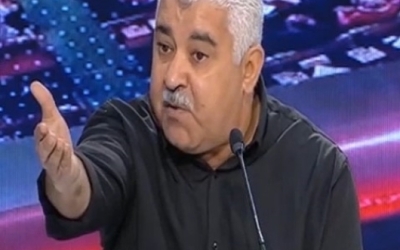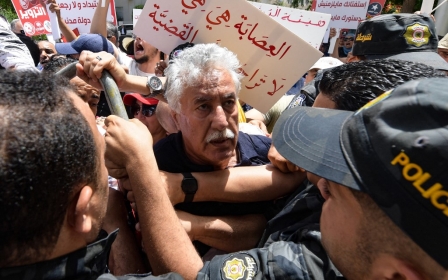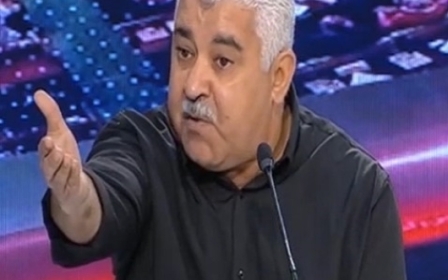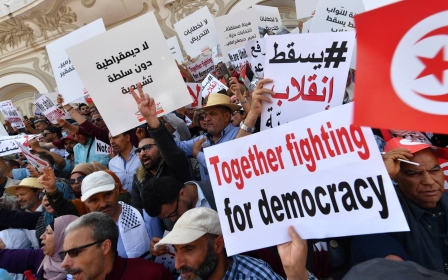Tunisian general strike to cancel international flights, and halt land and sea transportation

Tunisia's most powerful labour union on Wednesday announced a general strike that will result in the cancellation of all international flights to and from Tunisia and halt land and sea transportation.
The Tunisian General Labour Union (UGTT) said the action would take place on Thursday 16 June, and would include 15 transportation companies and the cancellation of 49 flights.
The union's statement said that state-owned companies' employees should not cross the picket line, in protest against President Kais Saied's decision to freeze wages as part of the government deal to secure a $4bn loan from the International Monetary Fund.
The UGTT said in a statement that "no one can deny the unprecedented deterioration in the social situation of wage earners of all kinds". It added that the strike comes "in light of low wages, the high cost of living, the deterioration of purchasing power, the decline in social services, the high tax burden, the rampant monopoly and smuggling, and the increase in unemployment among the children of wage earners and needy and marginalised families".
The strike will involve around 700,00o people.
'Painful' economic plan
Noureddine Taboubi, secretary-general of the UGTT, warned that the government's current social and economic plan was "painful" for Tunisians, as subsidies for essential goods were scrapped.
He said that the UGTT picked 16 June as it follows the last day of high school exams and the union did not want to cause disruption to public schools during this period.
Economic experts reported that the general strike, which will start at midnight on 16 June and last 24 hours, will cost the Tunisian economy an estimated 200 million dinars ($65m), and push investors to think twice before doing business in the country.
Tunisia's inflation reached 7.8 percent this month, the highest in 30 years, while the country has faced a political deadlock since July 2021, when Saied suspended the parliament and later dissolved it, in a move seen by his critics as a soft coup.
In April, Saied also gave himself powers to appoint three of the seven members of the electoral commission, including the president. His opponents accuse him of moving towards an autocracy. Some Tunisians, however, support his moves against a system they say achieved little in the decade since the 2011 revolt that toppled longtime ruler Zine El Abidine Ben Ali.
Middle East Eye propose une couverture et une analyse indépendantes et incomparables du Moyen-Orient, de l’Afrique du Nord et d’autres régions du monde. Pour en savoir plus sur la reprise de ce contenu et les frais qui s’appliquent, veuillez remplir ce formulaire [en anglais]. Pour en savoir plus sur MEE, cliquez ici [en anglais].





